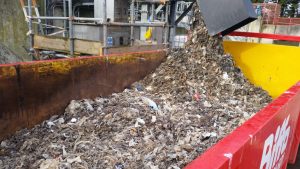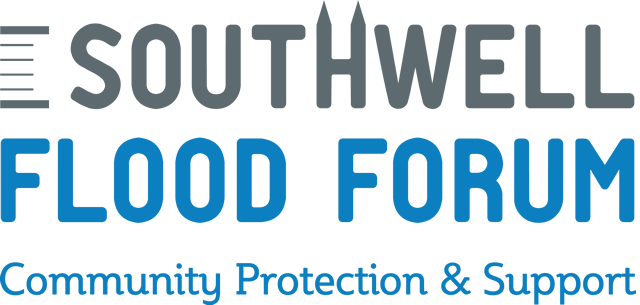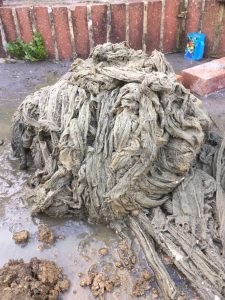Some of the drainage system in Southwell includes combined sewer systems i.e. sewers that are designed to collect rainwater runoff, domestic sewage, and industrial wastewater in the same pipe.
In view of our flood risk, it is important therefore not only to keep the rainwater roadside gullies clear of blockages from leaves and general debris but also to be mindful of what we flush through our household system.
Here’s a new report that proves wipes (e.g. baby wipes, household cleaning wipes) are a major cause of sewer blockages.

The amount of wipes that make it through the sewerage system to STW treatment works. This is the amount that Severn Trent Water remove from the works on a daily basis.
The biggest ever in-depth investigation of sewer blockages in the UK has revealed that wipes being flushed down toilets are causing serious problems in our sewerage system.
The information is detailed in a new report by Water UK, the trade body representing all of the main water and sewerage companies in the United Kingdom. It showed that wipes made up around 93% of the material causing the sewer blockages which the study investigated. These wipes – which included a high proportion of baby wipes – are not designed to be flushed.
Less than 1% of the domestic waste in the blockages was identified as made up of products which are designed to be flushed, such as toilet paper.
James Jesic, Managing Director of Production for Severn Trent, explains: “There are approximately 300,000 sewer blockages every year, with around 50,000 of those being across our region. This is costing the country £100 million – money which could be taken off bills or spent on improving services. Thousands of properties in our area suffer sewer flooding caused by these blockages every year in the UK, creating misery for homeowners and businesses and leading to high clean-up bills and increased insurance costs. Sewer flooding also has a major impact on the environment. The new research shows that most of these type of incidents could be avoided by the wipes being disposed of properly rather than being flushed down toilets.
“We want to thank retailers in the UK who have taken the lead with more visible Do Not Flush labelling for their efforts, but more needs to be done to help encourage individuals to stop using the toilet as a bin.”
Water UK’s Director of Corporate Affairs, Rae Stewart, said: “This study proves that flushing wipes down the toilet is a major cause of sewer blockages, and that means it’s a problem we can all do something about. Water companies spend billions of pounds every year making our water and sewerage services world class, but our sewerage system is just not designed to handle things like baby wipes which don’t break down in water. The good news is that by taking action we can stop the horror people face when their homes are flooded with raw sewage.
The report concluded that a renewed united and concerted approach is required to raise awareness among consumers of what can and cannot be flushed.
James agrees: “There are things that we water companies can do, such as improve education about what should and shouldn’t be flushed, and we have a really great programme that does just that. There are things manufacturers can do, such as make labelling clearer on non-flushable products. And, of course, there are things individuals can do – which is bin the wipes rather than flush them.”
The investigation of sewer blockages across the UK forms the main part of the report published today, titled the Wipes in Sewer Blockage Study. It was jointly funded and supported by Water UK, The Department for Environment, Food and Rural Affairs, and EDANA. EDANA is the trade association for the nonwovens industry, which includes the wipes sector.
Since January 2017, EDANA has been promoting the use of a ‘Do Not Flush’ symbol on the front of packaging to help stop non-flushable baby wipes, cosmetic wipes and household wipes being flushed down Britain’s toilets. EDANA members and retailers are being encouraged to adopt the front-of-pack ‘Do Not Flush’ logo on non-flushable wipes by October 2018.
If anyone would like to visit a local sewage works or go out with a sewer crew to see what they do and what the impacts are, please just let STW know.



